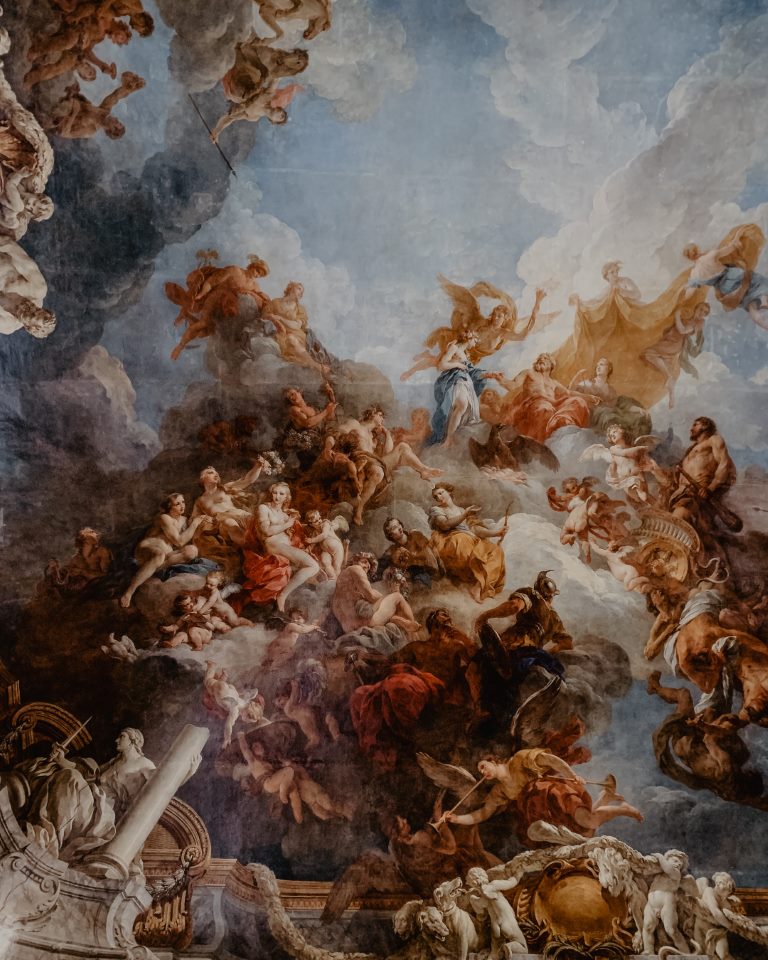How to Plan Your Private Day Tour: Mogao Grottoes, Singing Sand Dunes and the Silk Road Show in Dunhuang
Dunhuang, a city located in the Gansu Province of China, offers a rich cultural and historical experience to visitors. And what better way to explore and learn about the city than by embarking on a private day tour? The Mogao Grottoes, Singing Sand Dunes and the Silk Road Show tour is a perfect option. This post will guide you on how to plan your private day tour in Dunhuang.
Overview
The private day tour includes a visit to Dunhuang’s top attractions such as the Mogao Grottoes, Singing Sand Dunes and the Silk Road Show. The tour is operated by a third-party company and includes a local English-speaking tour guide.
What’s Included
The tour is all-inclusive, comprising taxes, fees, handling charges, and gratuities. It also includes a delicious lunch and dinner, as well as the opportunity to purchase souvenir photos.
Meeting and Pickup
The tour pickup point varies according to your booking. You can select your desired location, and the tour starts at 08:30 AM
What to Expect
The Mogao Grottoes consists of a complex of 492 temples, and it is an awe-inspiring experience. The grottoes are home to a vast collection of Buddhist art and are known as the “Caves of the Thousand Buddhas.” Visitors can expect to see the stunning art and embroidery while exploring the many temples.
The Singing Sand Dunes, located in Crescent Moon Pool, offer a unique experience. The dunes produce a singing sound, hence the name “singing sand.” Visitors can enjoy a delightful walk on the dunes or rent a sled and slide down the dunes.
The Silk Road Show is a must-see highlight of the tour. The show features ethnic dance performances, live music, and colorful costumes, showcasing the rich culture and history of the Silk Road. The show is visually stunning and shares an educational and cultural experience to visitors.
Additional Info
The tour is wheelchair and stroller accessible. Infant seats are also available. Visitors must bring their current valid passport on the day of travel. Any changes made less than 24 hours before the experience’s start time will require a fee.
Cancellation Policy
The tour allows visitors to cancel up to 24 hours in advance of the experience for a full refund. If visitors cancel less than 24 hours before the experience’s start time, no refund will be given.
Book Your Tour Now
Planning your private day tour in Dunhuang is easy with the Mogao Grottoes, Singing Sand Dunes and the Silk Road Show tour. The tour offers a once-in-a-lifetime experience, combining art, culture, and history. Book the tour here and discover the beauty of Dunhuang’s top attractions.

Dunhuang: Frequently Asked Questions
Dunhuang is a city located in the northwestern part of China, on the edge of the Gobi Desert. It is a popular tourist destination due to its historical and cultural significance, as well as its proximity to the stunning natural landscape of the desert region. If you are planning a visit to Dunhuang, here are some frequently asked questions that can help you prepare for your trip.1. What are the top tourist attractions in Dunhuang?
Dunhuang has several popular tourist attractions that are worth visiting. The most famous of them is the Mogao Caves, which is a UNESCO World Heritage Site. Other famous attractions include the Mingsha Shan and Crescent Lake, Yulin Grottoes, and the Western Thousand Buddha Caves. In addition, the Dunhuang Museum, Dunhuang City Walls, and White Horse Stupa are also popular tourist sites.2. How do I get to Dunhuang?
Dunhuang has an airport with direct flights from several major Chinese cities, including Beijing, Shanghai, and Guangzhou. Alternatively, you can also take a train to Dunhuang from major cities such as Beijing or Xian. Dunhuang is also accessible by bus from various cities in Gansu and Xinjiang province.3. When is the best time to visit Dunhuang?
The best time to visit Dunhuang is during the spring and autumn seasons, which are from April to June and September to November, respectively. The weather during these months is mild, and the skies are clear, which makes it easy to enjoy the natural beauty of the desert, as well as the cultural attractions in the city. Summer can be extremely hot, with temperatures reaching up to 38°C, while winters can be quite cold, with temperatures dropping below freezing.4. What is the cuisine like in Dunhuang?
Dunhuang cuisine is influenced by the spicy flavors of Sichuan cuisine and the hearty, meat-based dishes of Xinjiang cuisine. Lamb skewers, fried rice with lamb, and hot pot are some of the popular dishes you can find in Dunhuang. You can also try local specialties such as Dunhuang Yellow Noodles, Liang Pi, and Suoman.5. Are there any accommodations in Dunhuang?
Dunhuang has a wide range of accommodations, ranging from budget hostels to luxury hotels. Most of the hotels are located in the city center, but there are also options available near the major tourist attractions. During peak tourist season, it is advisable to book your accommodations in advance to avoid the hassle of not being able to find a place to stay.6. What can I buy in Dunhuang?
Dunhuang is known for its traditional crafts, such as paper-cuttings, embroidery, and wooden combs. You can also buy souvenirs and gifts, such as bookmarks, postcards, and keychains, inspired by the art and culture of Dunhuang. Local specialties, such as goji berries, apricots, and walnuts are also available in the markets.7. Is it safe to travel to Dunhuang?
Dunhuang is generally a safe city for tourists. However, it is advisable to take precautions, such as being careful with your valuables and avoiding isolated areas at night. Be aware that there are occasional sandstorms in the area, and it is important to stay informed about the weather conditions during your stay.8. Are there any cultural norms or customs that I should be aware of in Dunhuang?
When visiting Dunhuang, it is important to respect the local customs and traditions. Dress modestly and conservatively when visiting the temples and other religious sites. In addition, it is customary to remove your shoes when entering someone’s home or a temple. Learn a few basic phrases in Mandarin or the local dialect to interact with the locals.Book Your Tour Now
Dunhuang is a unique and fascinating destination that offers a blend of historical and cultural attractions, natural beauty, and traditional cuisine. Whether you are interested in exploring the Mogao Caves, experiencing the thrill of a desert safari or simply indulging in the local cuisine, Dunhuang is sure to leave you with lasting memories. By planning your trip in advance, respecting the local customs, and taking reasonable precautions, you can ensure a safe and enjoyable visit to this remarkable city.
How to Spend Your Time as a Tourist in Dunhuang
Dunhuang is a city located in the northwestern province of Gansu, China. It is known for its historical significance and cultural richness. If you are planning a trip to this city, here are some things you can do to make the most of your vacation:1. Visit the Mogao Caves
The Mogao Caves, also known as the Thousand Buddha Caves, are a complex of 492 temples and caves that are filled with Buddhist art and murals. The caves date back to the 4th century and are a UNESCO World Heritage site. The paintings and sculptures inside the Mogao Caves are considered to be one of the finest examples of Buddhist art in the world.2. See the Singing Sand Dunes
The Singing Sand Dunes are one of the highlights of Dunhuang. These dunes are known for the sound they make when the sand is touched or blown by the wind. The dunes are located about 5 km from the city and are around 200 meters high. You can take a camel ride or hike to the top of the dunes for some breathtaking views.3. Explore the Yumen Pass
The Yumen Pass was once an important gateway on the Silk Road. It was used for trade and communication between China and the West. Now, the Yumen Pass is a popular tourist attraction. You can explore the ruins of this ancient gateway and learn about its significance in history.4. Visit the Dunhuang Museum
The Dunhuang Museum is a must-visit for those who want to learn about the history and culture of the city. The museum has a collection of artifacts that date back to the Han Dynasty. You can see pottery, coins, and other artifacts that were found in the area.5. Take a Trip to the Crescent Lake
The Crescent Lake is a small oasis that is located in the middle of the desert. The lake is shaped like a crescent moon and is surrounded by sand dunes. It is a popular spot for tourists who want to take a break from the hustle and bustle of the city. You can take a boat ride on the lake or just relax on the shore.6. Enjoy a Night Market
The Dunhuang Night Market is a must-visit for food lovers. You can find a variety of street food here, including grilled skewers, noodles, and dumplings. The market is open every night and is a great place to experience the local culture.7. Take a Trip to the Western Thousand Buddha Caves
The Western Thousand Buddha Caves are another complex of temples and caves that are filled with Buddhist art. The caves are located about 35 km from Dunhuang and are less crowded than the Mogao Caves. You can see some beautiful murals and sculptures here.8. Visit the Dunhuang Grand Theater
The Dunhuang Grand Theater is a modern theater that showcases traditional Chinese culture. You can see performances of dance, music, and theater here. The theater is located in the downtown area and is a great place to spend an evening.Book Your Tour Now
Dunhuang is a city that is rich in history and culture. There are many things to see and do in this city, from exploring ancient ruins to experiencing the local food culture. To make the most of your trip, plan ahead and make sure to include some of these activities on your itinerary.Table of Contents

